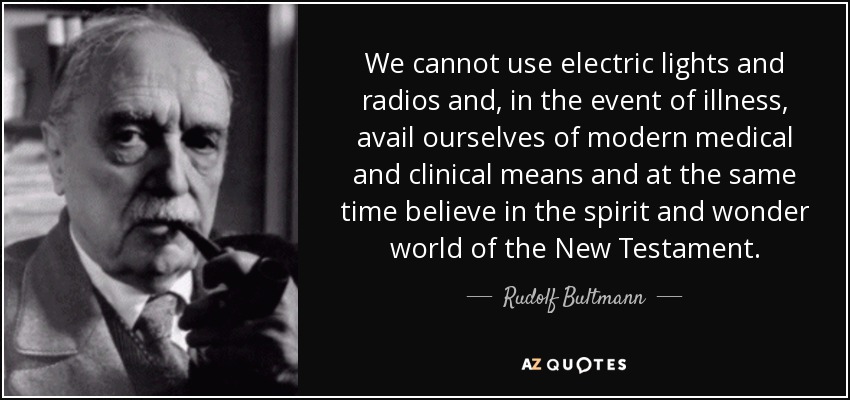
[Baltic Sea and Clouds]
Clouds mean different things to different people at different times: to the pessimist, ‘those look ominous; ‘ to the farmer, ‘those look promising;’ to the optimist, ‘every cloud has a silver lining!’ The historian Mark wrote concerning Jesus’ promised return, ‘everyone will see the Son of Man coming on the clouds with great power and glory. And he will send out his angels to gather his chosen ones from all over the world’ – from the farthest ends of the earth and heaven’ (13:26-27). ‘Son of Man’ is a title Jesus used of himself. The prophet Daniel, in his night-time vision of competing kingdoms, saw ‘someone like a son of man coming with the clouds of heaven. He approached the Ancient One and was led into his presence. He was given authority, honor and sovereignty over all the nations of the world, so that people of every race and nation and language would obey him. His rule is eternal – it will never end. His kingdom will never be destroyed!’ (7:13-14) The evangelist Matthew added the thought of suffering to that of sovereignty: ‘And then at last, the sign that the Son of Man is coming will appear in the heavens, and there will be deep mourning among all the peoples of the earth. And they will see the Son of Man coming on the clouds of heaven with power and great glory’ (24:30). The apostle John’s said concerning the all-conquering Christ, ‘Riding the clouds, he’ll be seen by every eye, those who mocked him and killed him will see him, peoples from all nations and all times will tear their clothes in lament. Oh, Yes!’ (Rev. 1:7/MSG)
Both Old and New Testament used the imagery of clouds. In the account of Christ’s ascension, ‘cloud’ represented divine covering and concealment (Acts 1:9). On the other hand, ‘cloud’ often signified God’s majesty on display: the Psalmist sang of mysterious, dark clouds surrounding God’s throne (Ps. 97); the fleeing Israelites were led by a special cloud signifying Yahweh’s presence, guidance and providence on their long journey to Canaan (Ex. 14). With regard to Christ’s second advent, clouds symbolized his splendid kingship over all. Quoting Dutch theologian, G.C. Berkouwer: ‘The ambivalence is no longer in the simultaneous concealment and revelation – distance and nearness at the same time – but in the glory that is manifested in its relationship to those who await or do not await Christ for their salvation… his coming on the clouds is not an entirely new and separate aspect of His coming, but an indication of His appearance in glory in this world!’ I.o.w. Christ’s second advent will be an event belonging to the same order of reality as all earlier visitations of God accompanied by cloud. 

Of course throughout the centuries, many have questioned the reality, perspicuity, visibility and personal nature of Christ’s return. E.g. for the influential German existentialist theologian Rudolf Bultmann* (1884-1976), all this was literally incredible for modernity. The New Testament’s ‘primitive’ world view, with its ‘mythical’ setting, was totally obsolete to humankind come of age. For him history didn’t come to an end… it would continue to run its course. With respect to Bultmann’s brilliant mind, such an outlook is nothing new. Peter, the cussing, practical, earthy disciple-cum-apostle of Jesus, reminded his persecuted readers of this thought-trend even in his time (2 Pet. 3:3ff). As Berkouwer points out, the important question in this debate is whether the meaning of the cross (according to Bultmann, the eschatological event of the NT) by its very nature excludes Christ’s coming again simply because our postmodern world deems it impossible and superfluous. Peter, an eye-witness of Christ’s empty tomb and historic transfiguration on Mt. Hermon, 
just before his martyrdom (nothing more sobering than that), encouraged a suffering Church, “I will work hard to make sure you always remember these things after I’m gone. For we were not making up clever stories when we told you about the powerful coming of our Lord Jesus Christ. We saw his majestic splendor with our own eyes when he received honor and glory from God the Father said to him, ‘This is my dearly loved Son, who brings me great joy.’ We ourselves heard that voice when we were with him on the holy mountain. Because of that experience, we have even greater confidence in the message proclaimed by the prophets. You must pay close attention to what they wrote, for their words are like a lamp shining in a dark place – until the Day dawns, and Christ the Morning Star shines in your hearts…” (2 Pet. 1:15-19). And so the Church of all ages, even in the darkest times, hears the words of her exalted Lord, ‘Yes, I am coming soon!’ and joyfully responds, ‘Amen! Come, Lord Jesus!’ (Rev. 22:20).
What is our calling as we patiently await our Master’s return? Peter would have been aware of Messiah’s identification of his disciples as ‘salt and light’ in a rotting and dark world (Mt. 6:13-16). The apostle Paul’s gives us an interesting insight in his letter to the Philippians in Rome’s far-off colony of Macedonia: ‘Dear brothers and sisters, pattern your lives after mine, and learn from those who follow our example. For I have told you often before, and I say it again with tears in my eyes, that there are many whose conduct shows they are really enemies of the cross of Christ. They are headed for destruction. Their god is their appetite, they brag about shameful things, and they only think of this life here on the earth. But we are citizens of heaven, where the Lord Jesus Christ lives…’ And we are eagerly awaiting for him to return as our Savior’ (Phil. 3:17-20). Remember, in the NT the gap between ‘heaven’ and ‘earth’ is paper-thin!
- Moffat translated v. 20, ‘We are a colony of heaven on earth.’ Sadly, many Western Christians have in the past had little/no concern for this earth. They have argued, ‘our home is in heaven’ – ‘we’re just a-passing through.’ They’re on the glory-train to their real home ‘in the sky.’ That is not biblical Christianity. For many of Philippi’s inhabitants, as Roman colonials, their city was ‘a little bit of Rome’ away from Rome. In fact, Caesar didn’t want people living in Philippi and other colonies to return to Rome – the purpose of being a Roman citizen was to take Roman rule and culture all over the world! Similarly, the ekklesia of Jesus is ‘a colony of heaven on earth.’ His kingdom-citizens are tasked to bring something of the very life and rule of heaven, to earth. Hence Jesus’ prayer, ‘May your kingdom come soon. May your will be done on earth, as it is in heaven (Mt.6:10). In short, Jesus will return at the climax of history to set up his everlasting kingdom of love and righteousness here on earth. The apostle John confirmed this in his Apocalypse, “And I saw a new heaven and a new earth, for the old heaven and the old earth had disappeared, coming down from God out of heaven like a bride beautifully dressed for her husband. I heard a loud shout from the throne, saying, ‘Look, God’s home is now among his people! He will live with them…’ So he took me in the Spirit to a great, high mountain, and he showed me the holy city, Jerusalem, descending out of heaven from God. It shone with the glory of God!’ (Rev. 21:1-3, 10-11). Throughout all of history, the living God has always come down to his people, to indwell them and live his divine life in them and through them!
- As I write, renewed racial tensions have exploded in the USA, Britain and Europe. It’s not a new problem: it goes right back to the NT Jewish-Gentile divide and many others before. However, from that early ‘primitive’ Church there emerged a Jesus-type-radicalism that transcended all human barriers. In those early radical communities everyone was ‘family’: Jews and Gentiles, slave and free, rich and poor, male and female. To such an extent that the Roman world stood in awe as they saw people who had previously hated each other, begin to love one another and ‘do life together’ in the name of Jesus! (cf. Acts 2:42) (do read Eph. 2:14-20) Today still, in many places, there is a new race emerging, a colony from another realm, yet for this earth. It’s ‘the fellowship of the reconciled.’ In our local multi-cultural house church we have a dear brother, physically beaten up many times in the early 1980’s by white farmers on a rural citrus farm. Understandably, he became extremely bitter toward the white man. He sought help from classic Communists like Marx and Engels but found no ultimate answers as to his personal identity. One day a friend gave him a Bible, and for the first time in his life he discovered he was accepted, acknowledged and loved by God and others confessing Jesus’ name. What a testimony he’s been to our group, what a blessing, what a guide.
[In Part 4 we hope to deal with the resurrection of the body]
May our reigning and returning LORD JESUS himself inspire us all, as individuals and Jesus-communities, to true repentance (change of mind and character), greater humility and unselfish service in a world of selfism (C.S. Lewis).
* Bultmann was influenced by Martin Heidegger, the renowned German existentialist philosopher. Perhaps also by Enlightenment-thinking which notoriously insisted on splitting history and faith, facts and values, religion and politics. Hence Bultmann focused on the Church’s experience of faith rather than the historicity of Christ. In his mind the resurrection was not so much a fact of history but a projection of early Christian belief. On the historical Christ, I would heartily recommend the research and subsequent writings of N.T. Wright, leading NT historian and scholar today: see for example his ‘The Challenge of Jesus: Rediscovering Who Jesus Was and Is.’ He questions the arrogance of modern scholarship which has not allowed Jesus to be a thinking, reflective theologian. He submits that not only Paul, John and the author of Hebrews, but also Matthew, Mark and Luke were highly gifted, reflective and creative theologians. ‘Why should we be forced to regard Jesus as an unreflective, instinctive, simplistic person, who never thought through what he was doing in the way that several of his contemporaries and followers were well able to do?’ Wright adds that modern psychology can’t even clearly work out our present culture’s issues – to suppose one can achieve clear results with someone from a distant time and culture is to go blindfold into a dark room to look for a black cat that probably isn’t there!
[Imho, the problem also lies with many ‘academics’ of our day (Bultmann didn’t tolerate any critics). Thomas Oden, American theologian, has said it’s more about theologians today than the biblical text. R.C. Sproul, who studied under Berkouwer, suggests that we don’t have to do away with our intellect in order to trust the Bible, but do we have to do give up our pride! The text itself should be allowed to interpret us, instead of (only) the other way round]



